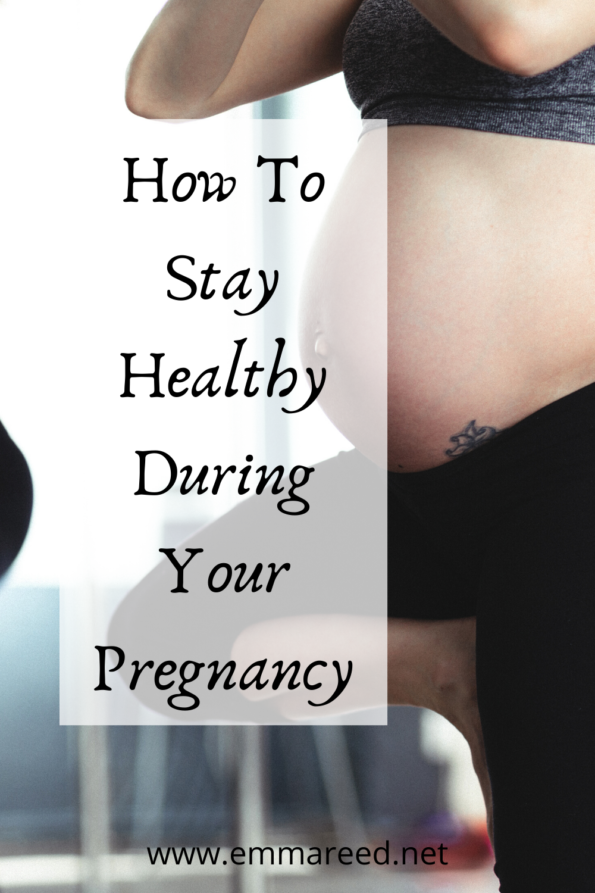
How To Stay Healthy During Your Pregnancy

*Collaborative Post
The way you take care of yourself while pregnant plays a vital role in determining if you will have complications in the course of the pregnancy and during delivery, and more importantly, the health of your baby.
Many myths abound about what’s good and bad for a pregnant woman, the foods you should eat and which ones you should avoid, but you the guiding principle should be what’s bad for you is worse for your baby. Also, remember that the baby’s immune system is weak and you should, therefore, watch what you feed them through your own foods.
Follow these tips for a healthy pregnancy…
Watch what you eat
Your immune system is lowered during pregnancy making you vulnerable to common diseases and allergies. As such, you should watch what you eat to avoid cases of food poisoning or triggering allergies and putting your pregnancy at risk. Many pregnant women also wonder about their favourite drinks and treats, like can you drink boba tea while pregnant? Do your research and also check with your midwife as navigating what’s safe during pregnancy can be confusing.
Always, always make sure your food is well cooked and it will also pay off to avoid common allergen foods like seafood and nuts.
More importantly, eat a well-balanced diet. You need to have a healthy mix of proteins, carbs and fruits and vegetables. Your food should also be rich in fibre since indigestion and bloating are both common pregnancy problems especially in the first trimester but which can be easily managed with Tums Pregnancy.

Watch how much you eat
Eating for two is a common pregnancy myth that will see you gain weight so rapidly it becomes a health risk. While weight gain during pregnancy is normal and healthy, overeating can be dangerous.
You will notice your hunger pangs become more severe and frequent as the pregnancy progresses and your appetite will also shoot up, but that doesn’t mean that you throw all caution to the wind when it comes to healthy eating habits.
You still need to watch your portions and eat healthy snacks in between meals. Don’t go on a diet either as it may deprive your baby of essential nutrients. This can affect the baby’s development and lead to serious pregnancy complications.

Attend your antenatal appointments
Your antenatal visits are very important for your own health and the baby’s. A doctor needs to monitor the progress of your pregnancy and this way, potential health risks can be detected early and managed before they affect your baby’s growth and cause serious health complications.
You need to visit your maternity doctor every month during the first and second trimester and every fortnight during the third trimester or as your doctor recommends. Here they will monitor your health, the baby’s growth, they can listen to the baby’s heartbeat and answer any concerns you may have. Gestational Diabetes is a common health issue in pregnant women so you can ask Glucose questions during your checkup also.

Exercise
Mild exercise can ease some of the symptoms of pregnancy like fatigue and swelling. Stretching and walking can help improve blood circulation and reduce the risk of developing varicose veins and also help offset some of the swelling that comes as a result of water retention.
Moreover, regular exercise also helps maintain your weight gain within the healthy range as well helping you deal with irritability and mood swings that usually come with a pregnancy. However, if vein swelling or discomfort continues beyond typical pregnancy changes, it may be an early sign of varicose veins or chronic venous insufficiency. Seeking advice from a specialist ensures that circulation concerns are addressed safely, both during pregnancy and after delivery. For those in Central Texas, visiting a qualified vein doctor near Austin can provide tailored guidance and minimally invasive treatments that support long-term leg health and mobility.
You will, however, need to consult with your doctor before you engage in more intense forms of exercise. Moreover, if you begin to experience inflammation in your veins you definitely need to consider seeking treatment. And if you happen to live in one of the biggest cities in the United States, you can easily find a vein specialist in Phoenix, Los Angeles, Boston, New York, and more.

*This is a collaborative post. For further information please refer to my disclosure page.
Pin for later:





